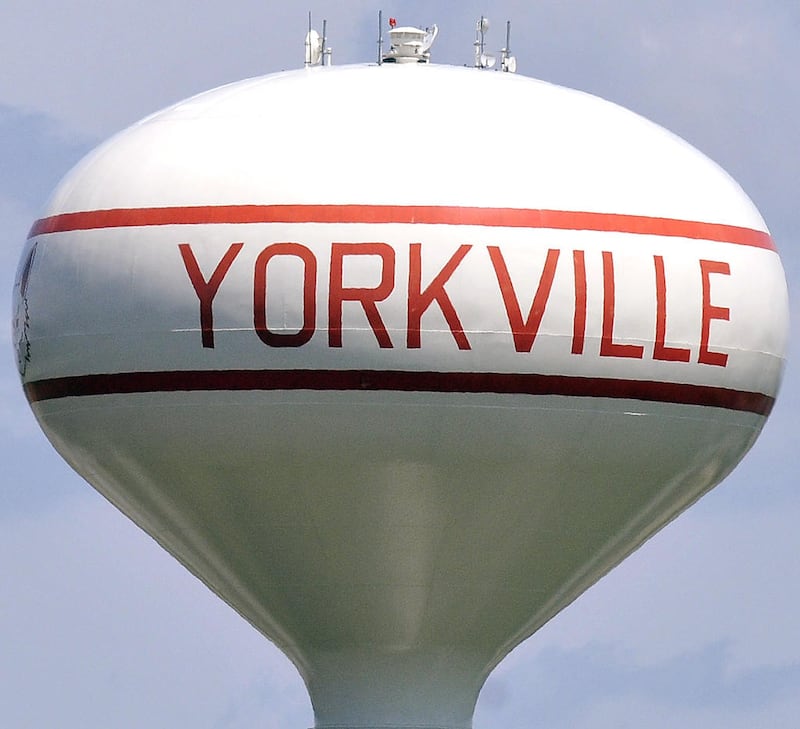A massive 1.5 million-gallon standpipe water tower is being constructed on the south side of Yorkville, but the site’s weak soil foundation is causing the city a $700,000 challenge.
The entire project is running up a price tag of almost $7 million and will be located on Illinois Route 126, southeast of Illinois Route 71. The construction site recently was bought by the city from a portion of Restore Church’s property.
Project funding is being secured through a Water Infrastructure Finance and Innovation Act federal loan, according to city documents.
The project is part of the necessary infrastructure for the $100 million Lake Michigan water sourcing project. The DuPage Water Commission, which the city is partnering with for the project, mandates that Yorkville have two times the storage as the city’s average daily water use.
Once constructed, the water tower and receiving station will help distribute Lake Michigan water evenly throughout town.
“The church was very cooperative throughout the process,” Brad Sanderson, city engineer, said during the June 17 public works meeting. “The property was just closed on a couple days ago, so the property has now been formally purchased.”
It was during the bidding process for the construction where things became a little more tricky.
Only two local companies have the capacity to build such a large water tower, and one backed out because of the weakness of the property’s soil, Sanderson said during the meeting.
Samples of the soil showed that to secure the water tower properly to ensure it does not crash over, the foundation would need to be dug much deeper than expected into stronger soil, Sanderson said.
The deeper the dig the bigger the price tag. The extra efforts to secure the standpipe water tower run $700,000 above original estimates.
City officials said this puts the project in a bind, because delaying the project any longer to find a new, cheaper site, could have its own negative consequences.
“Any more of a major delay will certainly jeopardize the completion of the tank by the end of 2027,” Sanderson said.
The city hopes to complete all necessary infrastructure by the end of 2027 to ensure that the first water from Lake Michigan starts coming down the pipes in the summer of 2028.
The public works committee recommended to city council to approve a $6,578,339 contract with CB&I Storage Solutions, LLC, of Plainfield, for construction of the standpipe water tower. The committee also recommended a $394,744 engineering agreement with Engineering Enterprises Enterprises, Inc. of Sugar Grove, of which Sanderson is the CEO.
Once completed, the new standpipe water tower will have a top capacity line at 850 feet.

:quality(70)/s3.amazonaws.com/arc-authors/shawmedia/0cef0bf9-a04e-4bb4-aea0-03d8ced01c00.jpg)